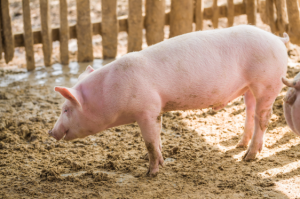لماذا لا يستطيع المسلمون تناول الخنزير؟
تعتبر قضية تناول الخنزير من القضايا الدينية المهمة في الإسلام، حيث يتم تحريم تناول لحم الخنزير ومنتجاته لدى المسلمين. وهناك أسباب عديدة ومتعددة تفسر هذا التحريم، تاريخية وصحية ودينية، والتي تعكس تعاليم الإسلام ومبادئه الدينية والثقافية.
من الناحية التاريخية، يعود تحريم تناول الخنزير في الإسلام إلى القرن السابع الميلادي، حيث جاءت هذه التعاليم في القرآن الكريم والسنة النبوية. يعتقد المسلمون أن الله وحده يحكم بما يجوز وما لا يجوز للإنسان، وأن القرآن الكريم هو كلام الله المنزل على النبي محمد (صلى الله عليه وسلم) لتوجيه الناس في حياتهم اليومية. وفي القرآن الكريم يقول الله تعالى في سورة الأنعام، الآية 145: “قُلْ لا أَجِدُ فِي مَا أُوحِيَ إِلَيَّ مُحَرَّمًا عَلَى طَاعِمٍ يَطْعَمُهُ إِلَّا أَنْ يَكُونَ مَيْتَةً أَوْ دَمًا مَسْفُوحًا أَوْ لَحْمَ خِنزِيرٍ فَإِنَّهُ رِجْسٌ أَوْ فِسْقًا أُهِلَّ لِغَيْرِ اللَّهِ بِهِ”، وهذه الآية تكون واضحة في تحريم تناول لحم الخنزير ووصفه بأنه رجس وفاسق.
بالإضافة إلى الأسباب التاريخية، هناك أسباب صحية وتغذوية لتحريم تناول لحم الخنزير في الإسلام. فلحم الخنزير يحتوي على العديد من الأمراض المعدية والطفيلية التي يمكن أن تسبب أمراضًا خطيرة للإنسان. على سبيل المثال، يمكن أن يحمل لحم الخنزير الديدان والطفيليات مثل الديدان المستديرة والشريطية والطفيليات المسببة للتسمم الغذائي. كما أن لحم الخنزير قد يكون مصدرًا للعدوى بالعديد من الأمراض المعدية مثل السالمونيلا والطاعون والتريشينيلوزيس.
ومن الناحية الدينية، يعتبر تحريم تناول الخنزير جزءًا من الاستسلام لإرادة الله والامتثال لتعاليم الدين الإسلامي. يُعتقد أن الله وحده يعلم ما هو أفضل للإنسان ويحظر ما يضره، ولذلك فإن المسلمين يمتنعون عن تناول الخنزير احترامًا لهذا التعليم وتقديرًا للحكمة الإلهية.
بالإضافة إلى ذلك، يتم تعزيز تحريم تناول الخنزير في الثقافة والتقاليد الإسلامية، حيث يعتبر امتناع عن تناول الخنزير علامة على الطهارة والتقوى. يُشجع المسلمون على اتباع نمط حياة صحي ونظيف، والامتناع عن تناول الخنزير يعتبر جزءًا من هذا النمط الصحي.
في الختام، فإن تحريم تناول الخنزير في الإسلام يعتبر جزءًا من العقيدة الإسلامية والتعاليم الدينية. يشتمل هذا التحريم على جوانب تاريخية وصحية ودينية، ويعكس قناعات المسلمين بشأن طهارة وصحة الحياة. على الرغم من التغيرات التي تطرأ على العادات الغذائية في العصر الحديث، ما يزال تحريم تناول الخنزير مستمرًا كجزء من العقيدة الإسلامية والثقافة الدينية للمسلمين.
Why can’t Muslims eat pork?
The issue of eating pork is considered one of the most important religious issues in Islam, where it is forbidden to eat pork and its products among Muslims. There are many reasons for this prohibition, historical, health and religious, which reflect the teachings of Islam and its religious and cultural principles.
Historically, the prohibition of eating pork in Islam dates back to the 7th century AD, where these teachings were revealed in the Holy Qur’an and the Sunnah of the Prophet. Muslims believe that Allah alone judges what is permissible and what is not permissible for man, and that the Holy Qur’an is the word of God sent to Prophet Muhammad (peace be upon him) to guide people in their daily lives. And in the Holy Qur’an, Allah Almighty says in Surah Al-An’am, verse 145: “Say, “I do not find in what I have revealed to you that is forbidden to eat unless it is dead or covered with blood.” And the flesh of a pig is an abomination or a transgression, for there is no god but Allah in it.” This verse is clear in Prohibition of eating pork and describing it as unclean and immoral.

In addition to historical reasons, there are health and nutritional reasons for prohibiting pork consumption in Islam. Pork contains many infectious and parasitic diseases that can cause serious diseases to humans. For example, pork can carry worms and parasites such as roundworms and tapeworms and parasites that cause food poisoning. Also, pork can be a source of infection with many infectious diseases such as salmonella, plague and trichinosis.
From the religious point of view, eating pork is considered a part of submission to the will of Allah and obedience to the Islamic teachings. It is believed that Allah alone knows what is best for man and prohibits what is harmful, so Muslims refrain from eating pork out of respect for this teaching and appreciation for divine wisdom.
In addition, the prohibition of eating pork is reinforced in Islamic culture and traditions, where the prohibition of eating pork is considered a sign of purity and piety. Muslims are encouraged to follow a healthy and clean lifestyle, and refraining from eating pork is considered part of this healthy lifestyle.
In conclusion, the prohibition of eating pork in Islam is considered part of the Islamic faith and religious teachings. This prohibition includes historical, health and religious aspects, and reflects the beliefs of Muslims regarding purity and health of life. Despite the changes in dietary habits in the modern era, the prohibition of eating pork continues to be part of the Islamic faith and religious culture of Muslims.


